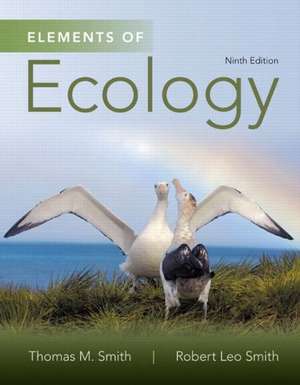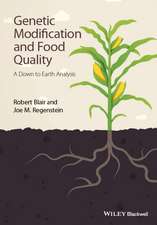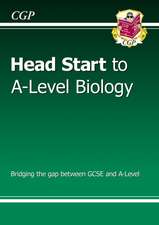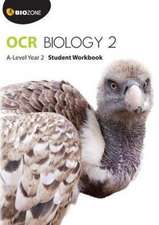Elements of Ecology
Autor Thomas M. Smith, Robert Leo Smith, T. M. Smithen Limba Engleză Paperback – oct 2014
Note: You are purchasing a standalone product; MasteringBiology does not come packaged with this content. If you would like to purchase both the physical text and MasteringBiology search for ISBN-10: 0321934172/ISBN-13: 9780321934178. That package includes ISBN-10: 0321934180/ISBN-13: 9780321934185 and ISBN-10: 0321976010/ISBN-13: 9780321976017. MasteringBiology should only be purchased when required by an instructor.
"
Preț: 1269.78 lei
Preț vechi: 1649.06 lei
-23% Nou
Puncte Express: 1905
Preț estimativ în valută:
242.100€ • 252.16$ • 203.11£
242.100€ • 252.16$ • 203.11£
Carte disponibilă
Livrare economică 24 februarie-10 martie
Preluare comenzi: 021 569.72.76
Specificații
ISBN-13: 9780321934185
ISBN-10: 0321934180
Pagini: 704
Dimensiuni: 216 x 272 x 23 mm
Greutate: 1.3 kg
Ediția:Revised
Editura: Pearson
ISBN-10: 0321934180
Pagini: 704
Dimensiuni: 216 x 272 x 23 mm
Greutate: 1.3 kg
Ediția:Revised
Editura: Pearson
Notă biografică
Thomas M. Smith, Associate Professor in Environmental Sciences at the University of Virginia, received his Ph.D. in ecology from the University of Tennessee in 1982. The main focus of his research over the past two decades has been to develop an individual based theory of community and ecosystems dynamics. As part of this work he has served on numerous national and international panels that have addressed the potential influence of human activities on the global environment. He has authored over 70 publications based on his research, and he has been recognized as one of the most cited scientists in the field of global change research. Thomas's work has taken him to over 70 countries and 6 continents. He has served on the faculty of the University of Witwatersrand (Johannesburg, South Africa), Australian National University (Canberra, Australia), as well as the University of Virginia (Charlottesville, VA, USA). In addition, he has held research scientist positions at both Oak Ridge National Laboratory (Oak Ridge, TN, USA) and the Institute for Applied Systems Analysis (Laxenburg, Austria). His has over 20 years of experience teaching the science of ecology to both science and non-science majors. Robert L. Smith holds a Ph.D. in Wildlife Biology from Cornell University. He is Professor Emeritus of Ecology at West Virginia University. He has spent over 30 years teaching Ecology and conducting field research throughout the world. His teaching responsibilities have involved mostly undergraduate courses in general ecology and graduate courses in population ecology and wildlife management. His research has included forest-fire related problems in southern West Virginia, vegetational development and succession on abandoned and reclaimed surface mines, the relation between forest vegetational structure and the forest bird community, and forest habitat assessment and habitat evaluation procedures based on vegetational structure. Smith has served as a consultant to congressional committees, workshops on environmental education and energy and environmental problems, the National Landmarks program of the U.S. Department of Interior, National Research Council Task Forces on wildlife and fisheries issues and ecological classification systems for implementing environmental quality evaluation procedures.







